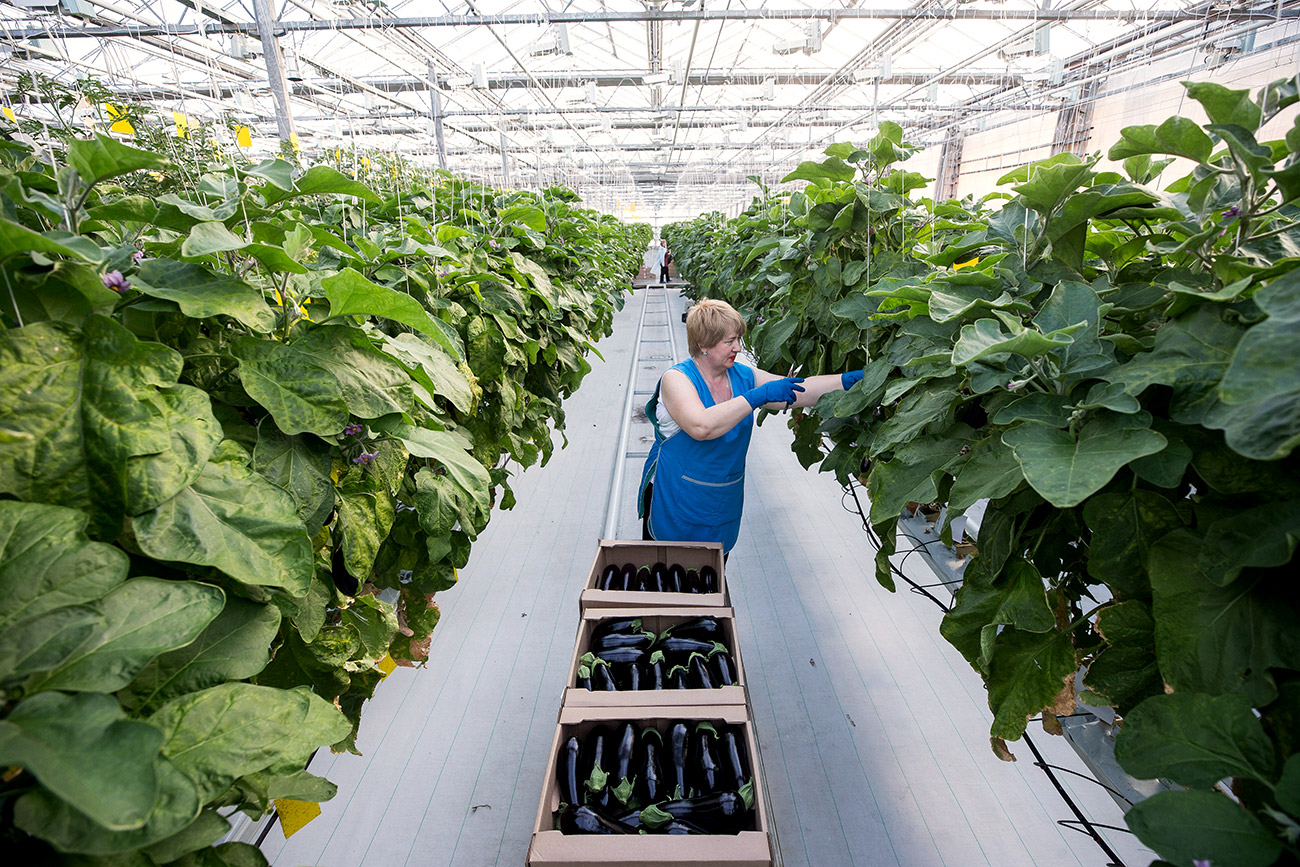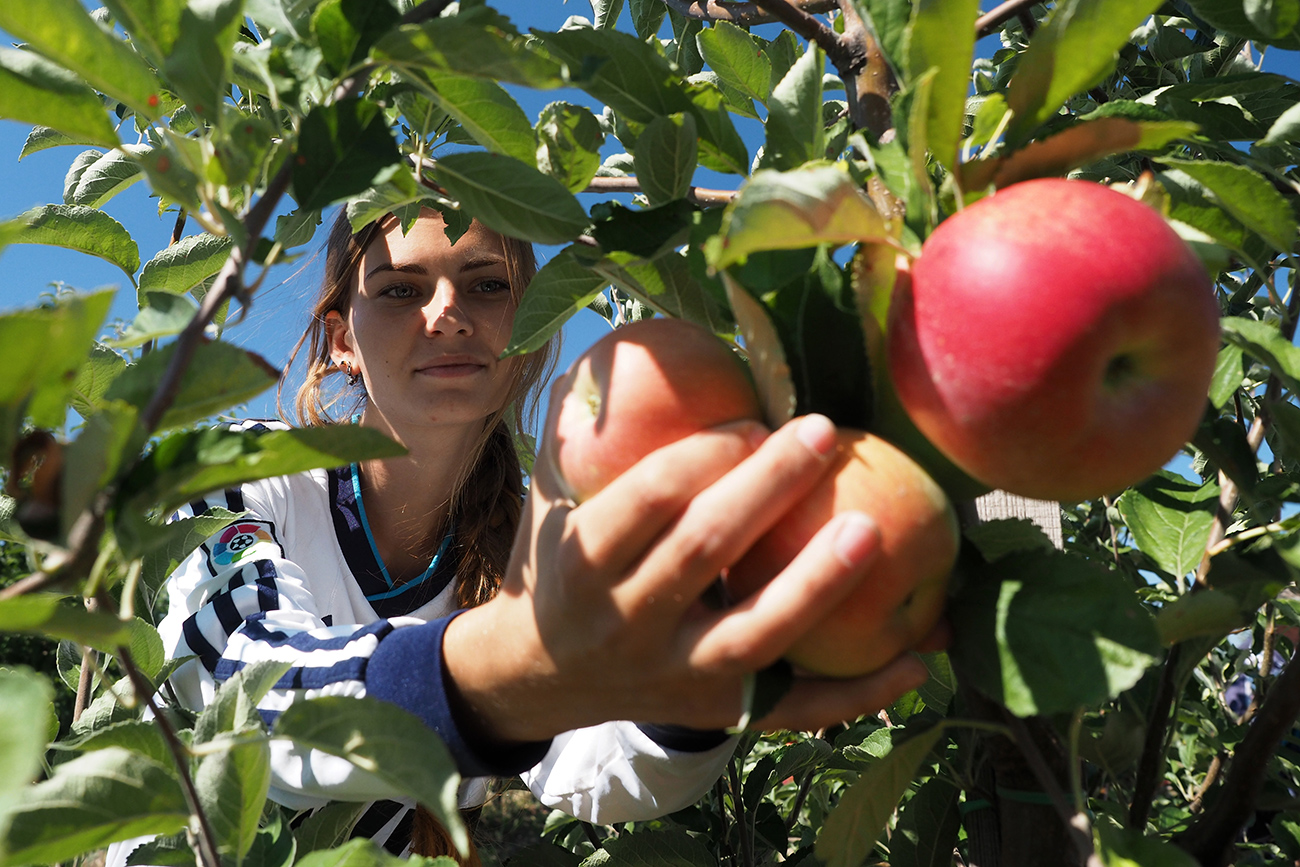Russian car dealers go into agriculture

Russian car dealers are looking at farming as a saviour.
Yegor Aleyev/TASSOver the past three years the Russian car market has shrunk by more than 50 percent — from nearly three million cars sold in 2013 to 1.42 million in 2016. The "Crimean Spring," Western sanctions, and above all, the devaluation of the Russian ruble, which has almost halved against major world currencies, has led to a catastrophic situation in the car industry.
But while some companies have been going bankrupt or selling assets, others — for example, the owners of Avilon and Major Auto, both top ten holding companies in Russia’s car industry — have found a solution by diversifying into agriculture.
They did this because in recent years agriculture has become one of the drivers of the Russian economy.
"Today's successes in energy-intensive industries such as pig and poultry farming are usually the result of work by investors who have not previously engaged in agriculture," says Natalya Shagaida, director of the Center for Agrofood Policy at the Russian Presidential Academy of National Economy and Public Administration.
And the profitability indicators in agriculture are significantly higher than in the automobile industry. According to the statistics of the ASE agency for 2014 to 2016, the average profitability of car dealerships in Russia fluctuates from around two to three percent. In turn, the profitability of agricultural organizations, according to Shagaida, averaged about 17 percent in 2013 to 2015, and it was even higher for companies specializing in vegetables grown under cover.
Vegetables, mushrooms, and Mercedes
Back in 2012 shareholders at the AkitA group, which owns major car dealer holding company Avilon, decided to invest in a new agro-industrial project. And so a big greenhouse complex — Agro-Invest — appeared in the Kaluga Region and today grows tomatoes and cucumbers on an area of 43.5 hectares with a total investment of over $260 million (15 billion rubles). In addition, the company has announced the start of construction is underway for a complex for growing button mushrooms in the Tula Region with an investment of $105 million (six billion rubles) and industrial capacity of up to 25,000 tons of mushrooms.
"We are confident that the agro-industrial line of business will have an important place in the activity of our holding company. As regards profitability, innovation, and image, it will play no less important a role than the car business," says Irina Monakhova, general director of the AkitA managing company.
Last year Agro-Invest sold 11,600 tons of vegetables, including 40 percent through leading supermarket chains such as Auchan, Diksi, Metro, Perekrestok, and others. The target for 2017 is to double sales. Agro-Invest's sales revenue last year amounted to one billion rubles ($18 million) and this year they should exceed three billion. For comparison, the turnover of the Avilon group in car retail in 2016 reached 51.2 billion rubles. (almost $900 million).
"It is incorrect to compare these two lines of business by revenue. In one case, we are talking about selling expensive cars and in the other about the production of vegetables for everyday demand. However, own production will always bring in many times more profit in relative terms than retail trade," Monakhova says.
Diversity is key
Another agricultural project is currently being developed by Major Auto, one of the top three players in the Russian car market. The company is investing in a livestock farm to be built in the Moscow Region. According to RBTH sources, the project involves the raising of cattle and small ruminants, as well as poultry, and the production of meat and dairy products. Mikhail Bakhtiarov, president of Major Auto, has refused to comment on the new line of business.
For Major Auto, diversification is far from a new idea. The group already includes a bank, a leasing company, a real estate agency, and a provider of logistics services. According to Yevgeny Yeskov, chief editor of the website AvtoBusinessReview, an agrofarm as part of a holding company with a turnover of significantly over 100 billion rubles ($1.7 billion) will occupy a modest place in the company in terms of its revenue and profit, hence it is unlikely to be seen as a project from which a lot of money is expected to be made.
How has the Russian car retail business been doing since devaluation of the Russian ruble?
If using any of Russia Beyond's content, partly or in full, always provide an active hyperlink to the original material.
Subscribe
to our newsletter!
Get the week's best stories straight to your inbox
